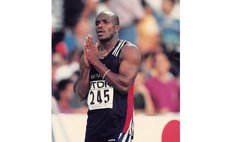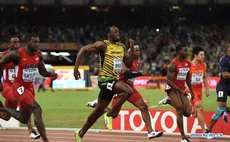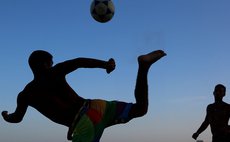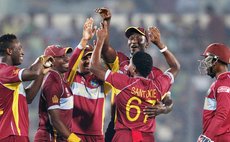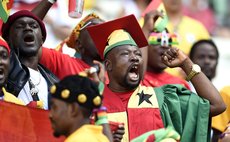Youthfulness extended upwards
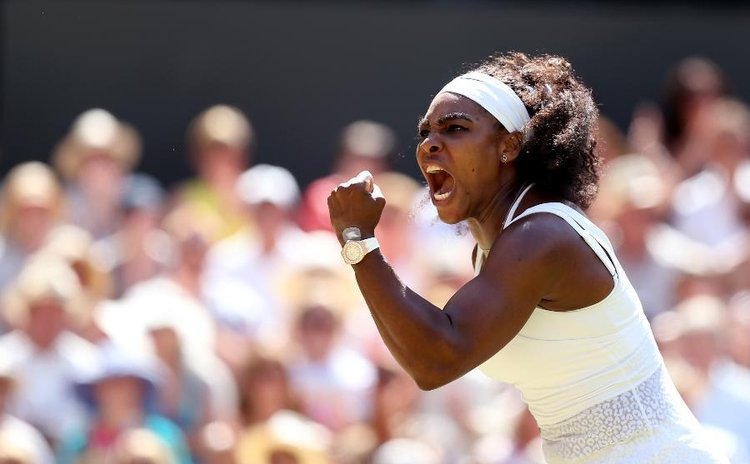
Arbitrarily, the limits of youthfulness in tennis settle at about the age of 29. In fact, a tennis playing friend of mine stuck ardently to expressing his age as no more than 29, and held to this tenaciously enough until time passed him by. It would seem that after he had gotten to 29, each succeeding year counted as a month! Ignoring my friend's reluctance at declaring his calendar age, the rest of the world remains preoccupied with entering into a love affair with each new generation of players. Age is not just a number. The bracket between 26 and 30 reflects a grandfatherly or grandmotherly category. Speed then, has said farewell and all the experience in the world is unable to steer clear of the inhibition factored in by growing aches and pains. This year's Australian Open Tournament at Melbourne presented us with four finalists some followers of the sport might consider escapees from a geriatric ward.
Serena Williams needs no introduction, having been at the top of the women's tennis world seemingly forever. She is 35, and with a track record suggesting she is the only one capable of beating herself when once she plays at her best. And, of course, she inevitably must answer a growing challenge from increasing age itself. Who then did she have for opponent in the ladies' final? The very unlikely personage of elder sister Venus! Almost routinely Serena cruised through the earlier rounds without dropping a set. She entered the tournament looking a good deal trimmer than last year's evident bulkiness. It was an excellent move to counter the advancing years by seeking a greater mobility as a prime ally. Even in an inflated version of her physical self she takes on anyone in foot speed and generally wins.
It was as well she does. She was facing her sister who herself has latched on to the secret of defying time. The sport of tennis does not provide for a drawn result. The authorities have long since instituted the tie breaker to ensure arriving at more speedy results. But on grounds of sentimentality we are torn by the necessity to take sides in support of one or the other, between two such sterling characters. Both of them have done so much to elevate the sport of tennis. They have raised the bar so much higher, and now their superlatives in longevity is so much to be praised. We are not to forget Venus has had to swim through the myriad physical challenges of being victim of a highly debilitating condition that leaves her void of energy and with painfully swollen joints. Imagine this for a player dependent not only on power but athletic mobility.
For the record, Serena won Saturday's final 6-4, 6-4 making it her 7th Australian Open title and her 23rd in the Grand Slam Majors, putting her one ahead of Germany's Steffi Graf in the era of professional competition, but one less than Margaret Court of Australia who played primarily in the amateur era. Experts are rating Serena Williams as the greatest female athlete of all time in all sports – quite an accolade!
The day after Serena's grand hurrah the men's equivalent in the gladiatorial stakes was played off between unlikely contestants Raphael Nadal and Roger Federer. We say "unlikely" not because the two were by any means out of place. Nadal was seeking a 15th triumph in the Majors and Federer in his 100th Australian Open match his 18th title in the Majors. The cloud hanging over them had to do with the fact that they had returned to top competition after the agonies of multiple surgical operations leaving them very doubtful about their abilities to really perform at the topmost level in an arduous sport.
Things worked out very well for them in that their main rivals Novak Djokovic and Andy Murray suffered elimination in the earlier rounds. Anyway, you have got to reach the final and play whoever comes in front of you. Federer's main hurdle was his countryman Stan Wawrinka in the semi finals and Nadal's comparable barrier was Bulgarian Gregor Dumetriov. Both matches went to five grueling sets. However, without making excuses, Nadal had something of a worse deal in that he would come into the final after only one day's rest, as against Federer who had two days to recuperate.
Great front runner that he is, Nadal has only lost once in the Majors after winning the first two sets – that's in 160 such efforts! Federer avoided a situation of the like by taking the first set 6-4.
Nadal showed he meant business by answering with a 6-3 hold on the second set and just when he looked like stamping his expected authority on the match he inexplicably went flat by dropping the 3rd set 1-6 to his opponent.
In the crucial 4th set Nadal gave his supporters hope he had not lost his powers of resurgence by coming out 6-3 to set the stage for an epic final set. However, there was no fairy tale ending for Nadal who fizzled out 3-6 to grant Federer a rebirth at the top of the tennis world.
To put it mildly, Federer played his very best game and Nadal did not. Nadal lost the match at two significant points. He deflated in the 3rd set just when he would normally have injected a strong exclamation mark after looking ever so dominant in taking the second set. Then, after starting the 5th set with a purpose and looking like going up 3-nil he suddenly seemed to lose his way with woeful errors on the critical points.
Better overall play gave Roger Federer the title. Yet, I am flabbergasted about any talk of he being the greatest tennis player of all time! Not on your life! About 55 years ago I saw in action Rod Laver, after whom the main stadium at the Australian Open is named. Federer would not have stood a chance against him. Laver, unlike Nadal, never misplaced his serve – always a big weapon in big tennis. And Laver was unrelenting athleticism personified. It was a great final, however, one in which both players – like the Williams sisters were over 30 years old
